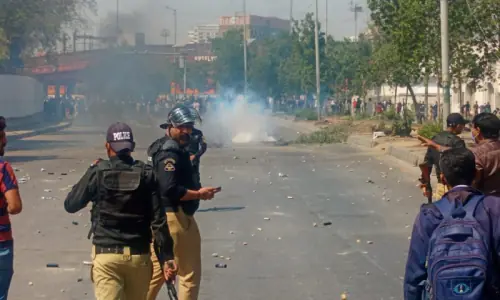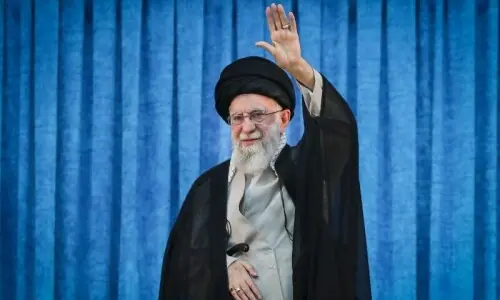A classified Pakistani government document has revealed that scores of civilians died in dozens of CIA-led drone strikes between 2006 and late 2009 in Pakistan’s Federally Administered Tribal Areas (Fata) and that Pakistani officials were “aware of those deaths for many years”.
The secret government document was quoted by the London Bureau of Investigative Journalism (LBIJ) in a report and reveals for the first time the Pakistani government’s evaluation of numerous drone strikes. It was prepared through field research by government officials and field agents stationed in Fata.
“Of 746 people listed as killed in the drone strikes outlined in the document, at least 147 of the dead are clearly stated to be civilian victims, 94 of those are said to be children,” the LBIJ said in its report.
The 12-page summary paper prepared by the officials, titled Details of Attacks by Nato Forces/Predators in FATA, outlines 75 separate CIA drone strikes between 2006 and late 2009 and contradicts claims by the United States which has repeatedly rejected allegations of high numbers of civilian casualties in drone attacks on Pakistani territory.
The US has claimed that “no more than 50 to 60 ‘non-combatants’ have been killed during the entire, nine-year-long drone campaign.
The period defined in the report fell in the presidential term of George W. Bush for the most part. However, drone strikes also increased significantly when Barack Obama took oath of office.
The Government of Pakistan has consistently maintained that drone strikes are counter-productive, entail loss of innocent civilian lives and have human rights and humanitarian implications and that such strikes also set dangerous precedents in relations between Pakistan and United States.
The statement was issued by Pakistan's Ministry of Foreign Affairs in condemnation to the US drone strike that had killed two suspected militants in Mir Ali Tehsil of North Waziristan tribal region on July 13.
Moreover, the statement said that drone strikes have a negative impact on the mutual desire of both countries to forge a cordial and cooperative relationship and to ensure peace and stability in the region.































